Our Sustainability Promise
It's no secret that the success of New Zealand tourism lies in the beauty of our landscapes, and the Wilderness team is dedicated to doing everything we can to keep it that way. That’s why we’ve committed to upholding the Tiaki Promise, which is our nation’s commitment to care for both people and place while enjoying the rich bounty that New Zealand has to offer, and we strongly encourage our guests to do the same.


Our Climate Commitment
At Wilderness, our responsibility to care for te taiao (the natural world) is not a choice — it’s a commitment. We stand alongside the Paris Agreement and have set clear goals: reducing our Scope 1–2 emissions by 42% by 2030 and reaching Scope 1-2 net zero by 2050. Guided by kaitiakitanga (guardianship), we’re determined to take meaningful action today so that future generations can continue to explore Aotearoa.
%20Work.jpg?width=600&height=800&name=Predator%20Free%20Hauraki%20Coromandel%20Community%20Trust%20(PFHCCT)%20Work.jpg)
Predator Free Hauraki Coromandel Community Trust (PFHCCT)
In 2017, a community working group was formed to provide regionwide focus and support to more than 60 conservation groups and over 1,000 active volunteers on the Coromandel Peninsula. That working group soon became a trust — the Predator Free Hauraki Coromandel Community Trust (PFHCCT).
CEO Jude Hooson explains how the trust aims to unify the groups’ efforts, support them, sustain them and then link those efforts up and grow — so we can have a time when no more predators roam the Peninsula.
The trust tries to get the many conservation groups to think outside the boundaries of their own projects so that collaboration happens through shared knowledge and energy.
A predator-free Coromandel can enhance our Wilderness guests’ experiences, as Jude elaborates.
When you walk through a forest, you expect to hear birdsong. The impact of predator control means that you can walk into a forested environment and hear and see native birds. It’s about seeing a diversity of wildlife. The health of the forest, the purity of the water — those are the impacts that would affect your guests.
Wilderness is delighted to be able to back an important cause like the PFHCCT. Jude is also thrilled with the assistance. It’s huge — not just the financial support but also as an acknowledgement of the work and effort being done.
Mana Manu Trust
Founded more than 15 years ago, the Mana Manu Trust aims to bring back native birdlife to the Whangapoua conservation area on the Coromandel Peninsula. As trust Chairperson Mary Hamilton explains, the end goal of the Mana Manu Trust is to have wildlife return to the area — and restoring the environment is required to achieve this.
The trust focuses on:
- An ongoing programme to get predators out — so kiwi will come back
- Protecting critically endangered species — like the Australasian bittern (matuku-hūrepo).
Mary highlights the main challenges the trust faces in working towards its goals. Predator control is very labour-intensive. We’re doing two main things — baiting twice a year and trapping all the time. Maintaining the tracks is also a big challenge because you need to have access to get the traps out there.
Wilderness is proud to support such a vital trust carrying out critical work for endangered native species on the Coromandel. The trust is equally pleased with the support, as Mary concludes. Funding from Wilderness allows us to access the best tools to give the birds a better chance of survival.

The Wilderness Environmental Care Code (ECC)
Our commitment to the environment only works with your support. That's why we have developed the Wilderness Environmental Care Code, which outlines the actions we are taking to minimise our impact on the environment and helps guide our guests to do their part as well. It’s our Wilderness sustainability promise — a two-way partnership between you, the guest, and us, the provider.
Your Part
DISPOSE OF WASTE RESPONSIBLY
Only use approved dump stations for disposing of grey water and toilet waste. Remove all rubbish when you leave a campsite, placing litter in bins and recyclables (paper, glass, aluminium cans, plastic, etc.) in recycling bins where provided.
CAMP ONLY WHERE PERMITTED
Observe local camping rules. Check our guide to responsible camping before planning your overnight stay.
TAKE EXTREME CARE WITH FIRE
Always obey fire restrictions. When cooking outdoors, only use a barbecue or the provided built-in fireplace.
PROTECT PLANTS AND ANIMALS
New Zealand is home to countless unique, rare, and endangered species. When bushwalking, always keep to the track, and comply if you are asked to clean your footwear, fishing equipment, or other gear to help reduce the spread of plant and animal diseases. Do not destroy trees for firewood. Be respectful and familiarise yourself with the local hiking etiquette.
PLANT MORE TREES
You can offset the carbon emitted on your New Zealand road trip by contributing to our Carbon Offset Programme. Our partner organisation will plant trees which will absorb carbon, reducing the impact your trip has on the environment.
Our Part
PROVIDE LOW-EMISSION VEHICLES
Our motorhomes meet the highest European emission standards for the automotive industry.
PROVIDE CERTIFIED SELF-CONTAINED MOTORHOMES
All our motorhomes are fitted with wastewater tanks and a fixed toilet in a separate room allowing you to dispose of unsanitary waste products correctly. They also comply with New Zealand's strict self-containment standards (NZS 5465:200).
MAINTAIN OUR MOTORHOMES
All vehicles are maintained to the highest standard and tuned correctly to minimise harmful emissions.
CLEAN AND GREEN BASE OPERATIONS
Our base operations are also carried out efficiently and with minimal waste. We use energy-efficient equipment and power saving techniques to reduce our power demand, recycle all recyclable materials, use environmentally friendly cleaning products, and more.
Trees That Count
Te Rahi o Tāne
Supporting credible planting projects throughout Aotearoa New Zealand.
As part of our commitment to minimising our environmental footprint and fostering a more sustainable future for Aotearoa New Zealand, we’ve proudly partnered with Trees That Count.
Trees That Count is a remarkable environmental charity dedicated to protecting and enhancing our unique biodiversity. It works tirelessly to protect vulnerable species and improve the health of our waterways.
The charity’s main focus is on strengthening vital carbon sinks. These natural and artificial reservoirs play a crucial role in absorbing carbon dioxide and mitigating the impacts of climate change — ultimately building resilience within our communities and ecosystems.
Exploring Aotearoa New Zealand by motorhome has environmental considerations, so we want to empower our guests to take meaningful action. Trees That Count offers an impactful way to contribute to environmental regeneration.
When booking your motorhome, you can make a real difference by purchasing trees for only $10 per tree. Adding trees to your booking makes you an active participant in our sustainability journey and a vital supporter of a greener future.
Wilderness passes 100% of your contributions on to Trees That Count.


Diversity, Equity & Inclusion (DEI)
Our commitment to diversity, equity, and inclusion (DEI) is at the heart of who we are and everything we do. We believe in the power of diverse perspectives and the strength it brings to our team, our customers, and everyone we interact with. We strive to create an environment where every individual feels valued and respected. Our company culture incorporates te ao Māori values of manaakitanga (hospitality and kindness) and whanaungatanga (relationship building).
We are dedicated to ensuring that all voices are heard and everyone has a seat at the table. Our inclusive practices are designed to break down barriers and provide equitable opportunities for growth and success. This commitment extends beyond our team to our customers and partners, ensuring that our services reflect the diverse needs and aspirations of the communities we serve.
Our journey towards DEI is ongoing, and we are continuously learning and evolving. We invite you to read our detailed DEI policy, which outlines the steps we are taking to promote a more inclusive and equitable environment.
Corporate Governance
At Wilderness, we uphold the highest standards of corporate governance, ensuring transparency and integrity in all our operations.
ANTI-CORRUPTION MEASURES
Our conduct policy encompasses all measures we take against corruption, including comprehensive guidelines on whistleblowing, bribery and corruption, conflict of interest, and formal oversight.
Supplier Code of Conduct
Our supplier code of conduct sets clear expectations on ethical practices, covering areas such as fair labour standards, environmental responsibility, and transparent supply chains.
OUR SUPPLIERS
We believe that publicly disclosing all our supplier relationships is essential for achieving transparency and fostering pono (trust) with our customers and stakeholders.



